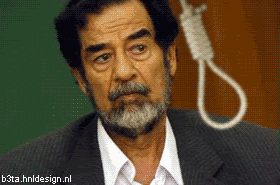Christophobia and the EU
Anne Applebaum of the WaPo editorial staff wrote an interesting column this week that got my sleep-deprived brain grinding away.
"Europe's "Christophobia" poses challenge for Pope"
The term "Christophobia" is cited by Catholic scholar George Weigel, borrowing the term from J.H.H. Weiler, a South African-born American legal scholar.
Mr. Weigel's recent book, The Cube and the Cathedral, lists several sources of what Miss Applebaum terms "this very powerful, very profound and very European - as opposed to American - antipathy."
Among Mr. Weigel's sources are:
- The experience of the Holocaust, which many European intellectuals concluded was the logical outcome of Christian bigotry through the centuries;
- The dissapointment still felt among European leftists over the collapse of European communism, which many 'blame' in part on the church;
- The legacy of the 1968 rebellions, which opposed traditional authority of all kinds;
- Europeans' tendency to associate the church with the "right" in general and Christian Democratic political parties in particular.
To this, I'll add a portion of the Amazon.com review of "The Cube and the Cathedral:"
Catholic neoconservative Weigel maintains that the weighty preamble to the European Union's proposed constitution demonstrates what is wrong with Europe. The document doesn't mention Christianity as a factor in the formation of Europe, instead touting the nonreligious influences of the pre-Christian ancients and the Enlightenment. The omission produced heated debate but little rewriting, indicating, Weigel says, elite Europeans' hostility to Christianity and reflecting the union's bureaucratic orientation against politics, especially the democracy that Christianity, with its concern for individual human dignity, fosters uniquely among the great world religions.
Medic's Musings:
While the United States, and American Catholics, will probably always be at odds with the Vatican, let us remember what the basis is for our own antipathy:
The United States is, both constitutionally and ideologically, a secular nation. However, our Founding Fathers built our system of laws based on the very basics of Judeo-Christian tenants. Our Constitution guarantees that no particular religion is in an ascendency over others. We, as Americans may have a "my way or the highway" mentality that sometimes collides with religious ideology, but we still invoke the name of God in our currency, our oath before testimony, and (no thanks to the ACLU) our Pledge of Allegiance.
Unlike Europe, in the United States, our Bill of Rights gives us the ability to express our disagreements over religious doctrine (Catholic vs Protestant, Christianity vs Judaism or Islam, etc), but we also provide for significant punishment for acting out on those disagreements.
Does the European Union have the same provisions? Of course not, in the EU, God doesn't legally exist, right?


























2 Comments:
Great post! Why people fear Christianity is beyond me.
As an EU citizen heres my take. Theres a real intellectual laziness here in EuropeMost young people you ask in Europe would probably agree that religions have been the cause of most wars and suffering, however they conveniently forget that anti-religious states such as the Soviet Union and Nazi Germany have probably killed more people in this century than all the other tyrants in history combined. Seconly most young Europeans, except probably in places like Ireland and Poland, have never been into a church except one thats been converted into a museum. In Socialist Spain, a strange kind of brain washing is occuring which shows tv shows with gay couples being completely normal, but anyone say they've been to church and they'll be looked at suspiciously.
Post a Comment
<< Home